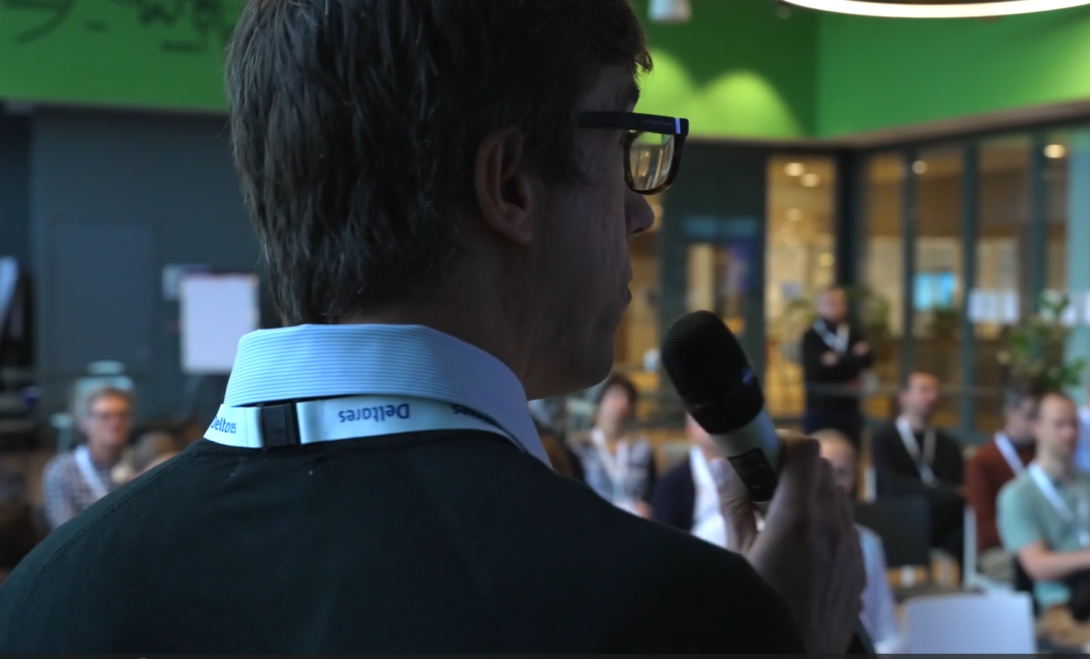Last week, 25-27 October, the EU-Horizon SpongeScapes project kick-off meeting took place in Delft, the Netherlands.
For three intensive days, colleagues from the 10 different partner organisations participated in workshops, a field visit and insightful discussions to enhance the sponge function of soil, groundwater and surface water systems.
Sponge function of landscapes refers to the ability of natural or managed ecosystems to absorb, store and slowly release water, thereby mitigating floods and droughts.
As part of the kick-off, partners visited the Dutch case study “Chaamse Beken”, where they discussed measures in both the urban, agricultural and forest zones of the catchment. Two employees of the Waterschap Brabantse Delta showed the SpongeScapes team around this beautiful area. Understanding the hydrological system of the area is an important part of selecting potential sponge measures.
Within SpongeScapes, the aim is to improve the evidence base for the functioning of such individual “sponge measures” and to provide methods for scaling them up into overarching “sponge strategies”.
The partners will use 14 in-depth case studies and review the 140 cases recorded in the EU database of natural water retention measures for their performance under different types of events, now and under future scenarios of change.
Ellis Penning, an expert in nature-based solutions and aquatic ecology at Deltares, is coordinating the project: "I'm thrilled that SpongeScapes is off the ground; this project has the potential to make a real impact on understanding how we can improve the resilience of landscapes to floods and droughts using nature-based solutions."
